Africa, Business Maverick, Media, Politics
A Decade In Pictures: 2004
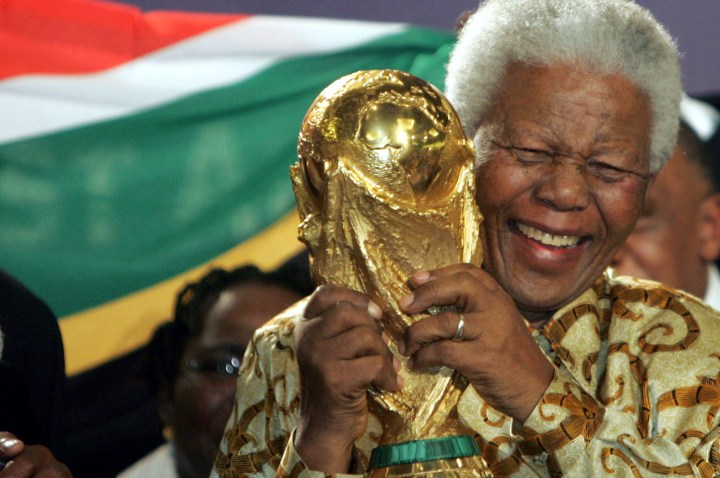
It was a year of troubles, from presidents in and presidents out to terrorists in Spain, Iraq and Russia. But it was the catastrophe of the Southeast Asian tsunami that capped a bad year in especially devastating style. Oh, and George W Bush was elected for his second, and thankfully, last term. By BRANKO BRKIC.
4 January: Mikheil Saakashvili becomes president of Georgia, capturing an almost-incredible 96% of the votes. The election is held after Eduard Shevardnadze resigned in November 2003.
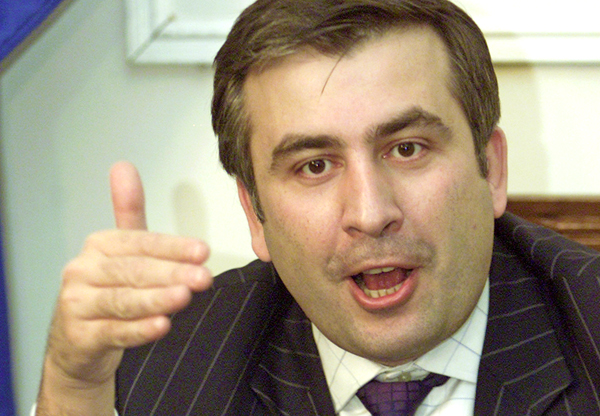
Photo: Then still Georgian opposition leader, Mikheil Saakashvili gestures as he answers journalists’ questions during a news conference at his office in Tbilisi, 19 November 2003. Georgia’s opposition vowed on Wednesday to bring “thousands and thousands” of people to the capital over the next few days – many walking – to demand that President Eduard Shevardnadze step down. REUTERS/David Mdzinarishvili.
3 February: The CIA finally admits there were no WMD in Iraq and that the main premise on which the war was prosecuted was false.
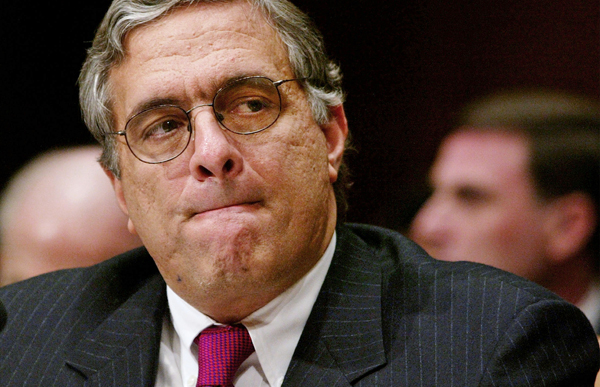
Photo: Director of Central Intelligence Agency George Tenet waits to testify before the Senate Intelligence Committee on Capitol Hill in Washington on 24February 2004. Tenet reported on his assessment of worldwide threats to the US. REUTERS/Larry Downing.
3 June: CIA director George Tenet resigns for “personal reasons”.
14 December: Another cringeworthy moment: President Bush awards Tenet the Presidential Medal of Freedom.
4 February: Facebook launches in Cambridge, Massachusetts. Initially envisioned by Mark Zukerberg as a network for college students, Facebook grows almost exponentially, displacing early leaders MySpace on its way to 500 million users.
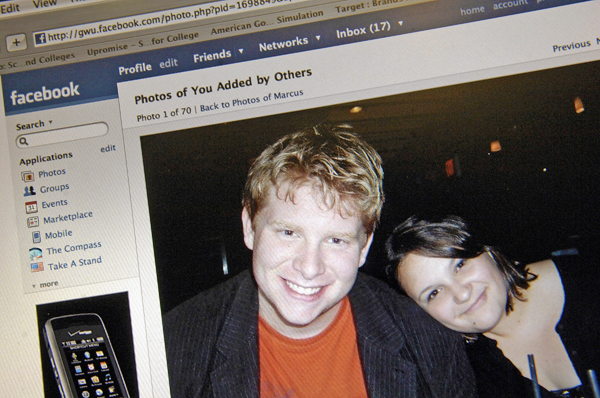
Photo: A photograph of Stephanie Endicott and Marcus Smallegan, first-year students at George Washington University, is seen on their Facebook website page in Washington, 25 November 2007. For the Facebook generation, love now comes with a drop-down menu. REUTERS/Jonathan Ernst.
29 February: Jean-Bertrand Aristide resigns as President of Haiti, only to be welcomed to South Africa, spending his time in luxury an SA-taxpayer-funded villa. He is provided with full-time staff and receives a salary – also paid for by aforesaid SA taxpayers.
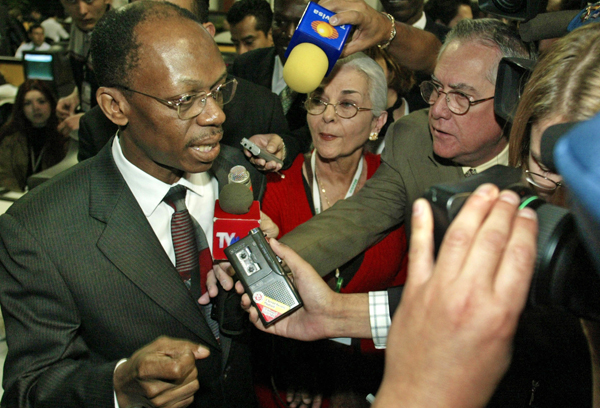
Photo: Then President Jean-Bertrand Aristide of Haiti responds to questions at the conclusion of a press conference at the Summit of the Americas in Monterrey, Mexico, on 13 January 2004. REUTERS/Joe Skipper.
11 March: Al-Qaeda attacks Madrid, killing 191 people. Prime Minister José María Aznar immediately blames Basque separatist organisation ETA, rather than an obvious suspect. When soon it becomes obvious it was al-Qaeda, Spanish voters turn their backs on Aznar’s centre-right government for what they see as cheap politicking, and install Socialist José Luis Rodríguez Zapatero as new Prime Minister on 14 March 2004. On 15 March Zapatero announces an immediate withdrawal of Spanish troops from Iraq.
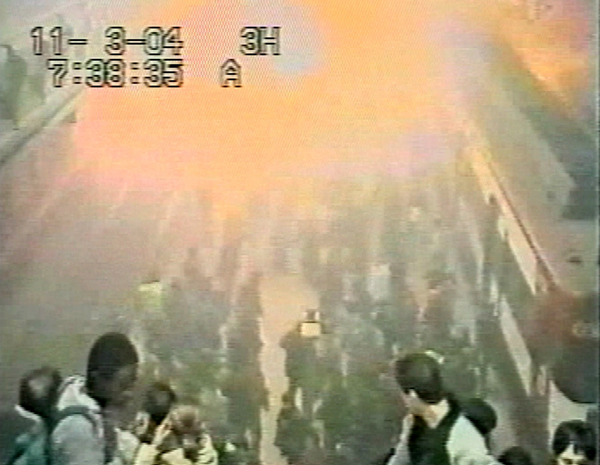
Photo: A video grab from security camera footage (made available on 19 October 2004) of a bomb exploding in Atocha railway station in Madrid on 11 March 2004. The Madrid train bombings kill 191 people and are blamed on Muslim militants linked to al Qaeda. REUTERS.
17 March: Ethnic Albanians attack ethnic Serbs in Kosovo, killing 19, torching more than 8,000 homes and 300 monasteries and churches.

Photo: A United Nations police vehicle burns during a protest in a street in Pristina, Kosovo, on 17 March 2004. REUTERS/Hazir Reka.
20 March: Chen Shui-bian is re-elected President of Taiwan by a mere 0.2% more than his opponent, Kuomintang candidate Lien Chan, who refuses to concede immediately. Though trailing behind Chan for months, Chen and his deputy, Annette Lu, are targets of a terribly suspicious assassination attempt, after which the assassin committed suicide and Chen and Lu clawed back sympathy support. After ending his second term in 2008, Chen and his wife are currently serving 19-year sentences for corruption.
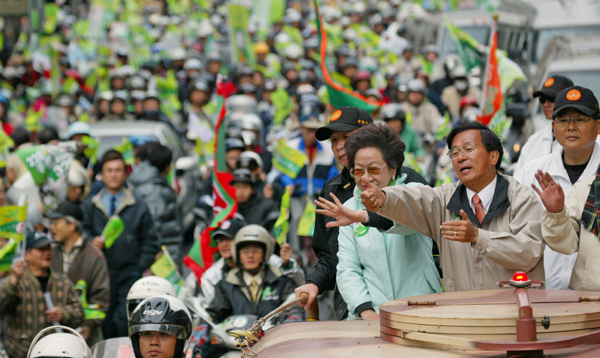
Photo: Taiwan President Chen Shui-bian (C), vice president Annette Lu (L) and former chairman of the Democratic Progressive Party (DPP) Lin Yi-hsiung, greet supporters during an election campaign in downtown Taipei, two days before the presidential election and one day before the “assassination attempt”. REUTERS/Simon Kwong.
29 March: Bulgaria, Estonia, Latvia, Lithuania, Romania, Slovakia and Slovenia join Nato in the greatest-ever enlargement of the security pact since its establishment in 1949. Needless to say, the Russians are not amused.
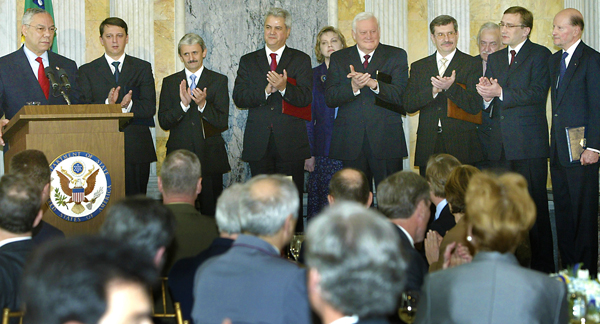
Photo: The leaders of seven new Nato member countries, along with US secretary of state Colin Powell, applaud during ceremonies in the Cash Room of the US treasury building in Washington on 29 March 2004. The leaders present their credentials before being formally inducted. The new Nato members countries’ leaders are (2nd L-R) Slovenian Prime Minister Anton Rop, The Slovak Republic’s Prime Minister Mikulus Dzurinda, Romania’s Prime Minister Adrian Nastase, Lithuania’s Prime Minister Algirdas Brazauskas, Latvia’s Prime Minister Indulis Emsis, Estonian Prime Minister Juhan Parts and Bulgaria’s Prime Minister Simeon Saxe-Coburg Gotha, who, curiously, is better known as Simeon II of Bulgaria and was Emperor (Tsar) of the Balkan country as a minor from 1943 to 1946, before being deposed by the Soviet Union-backed communists. REUTERS/Jason Reed.
14 April: ANC wins another SA elections, gathering record-breaking 69.69%.
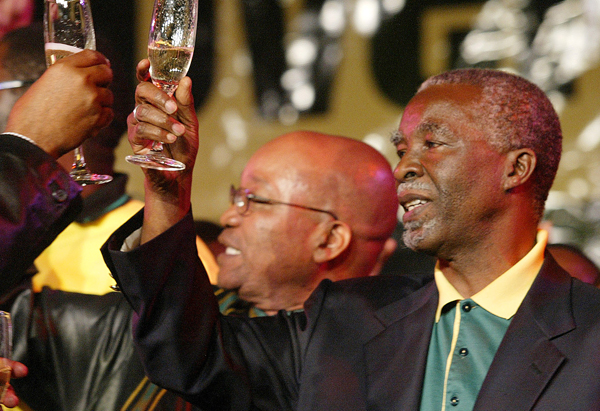
Photo: South African President Thabo Mbeki toasts with vice President Jacob Zuma at the African National Congress election victory celebrations in Johannesburg April 16, 2004. The ANC won its biggest election victory since the end of white rule with nearly 70 per cent of the vote. REUTERS/Howard Burditt
21 April: The original Israeli nuclear bomb whistleblower, Mordechai Vanunu is released from prison after 18 years in jail. A Moroccan Sephardic Jew, Vanunu revealed details of Israel’s nuclear programme to the UK Sunday Times, which published the story in September 1986. Just a few weeks later, Mossad undercover agent Cheryl Bentov persuaded him to fly with her to Rome, where he was kidnapped and transferred to Israel. There he was charged with treason and espionage. In jail he converted to Christianity. But even after serving sentence in full, Vanunu is placed under severe restrictions of free travel, association and communication, for violations of which he is harassed and arrested many times. He is twice sentenced to six months in prison and serves three months of the first sentence in 2010.
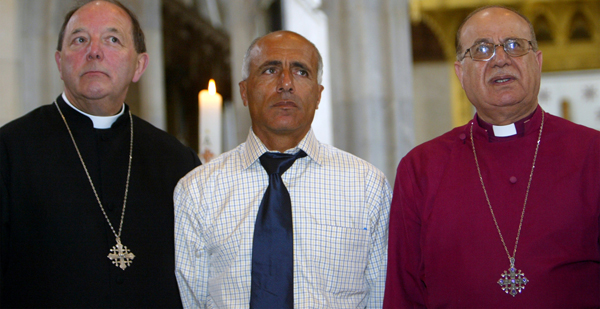
Photo: Israeli nuclear whistleblower Mordechai Vanunu (C) stands with father Michael Sellers (L) and Anglican Bishop Riau Abu El-Assl (R) in the Cathedral Church of St George in Jerusalem on 21 April 2004. REUTERS/Gil Cohen Magen.
28 April: The world looks on in horror as 60 Minutes II exposes prisoner abuse at Abu Ghraib prison on the outskirts of Baghdad.
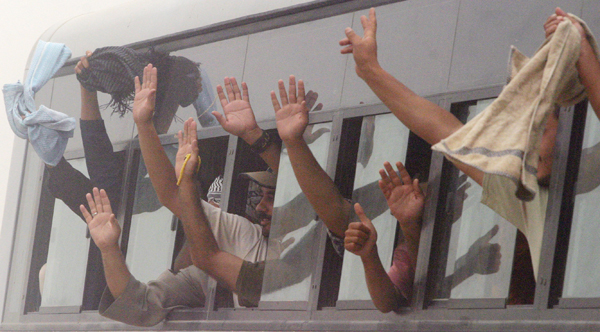
Photo: Former Iraqi prisoners wave from a window of a bus after they are released from Abu Ghraib prison west of the capital of Baghdad on 28 May 2004. The US military releases scores of prisoners from Abu Ghraib, keen to show it is improving conditions at the jail where images of abuses carried out by US soldiers spark international outrage. REUTERS/Ceerwan Aziz
1 May: In a move similar to Nato’s enlargement, the EU gains 10 new member states: Cyprus, Malta, Slovenia, Slovakia, Hungary, Czech Republic, Lituania, Poland, Latvia and Estonia. Russia is even more unhappy.
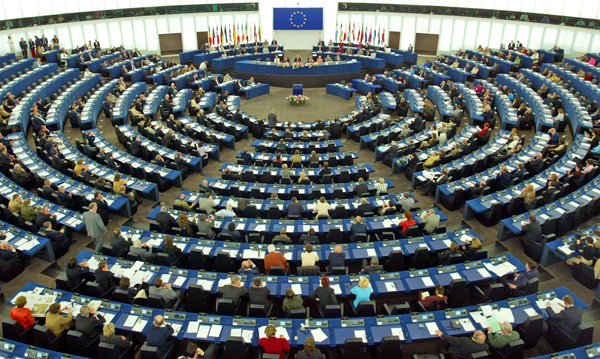
Photo: General view of the European Parliament in Strasbourg 3 May 2004 during the first session of the parliament with representatives of the 10 new EU member states. The EU is now 25 nations strong. REUTERS/Jean-Marc Loos
9 May: Former warlord, once chief mufti of Chechen Republic of Ichkeria and then president of Chechnya, Akhmad Kadyrov, is assassinated during a World War II memorial parade in Grozny. In 2007 his son Ramzan takes over as Chechen President.
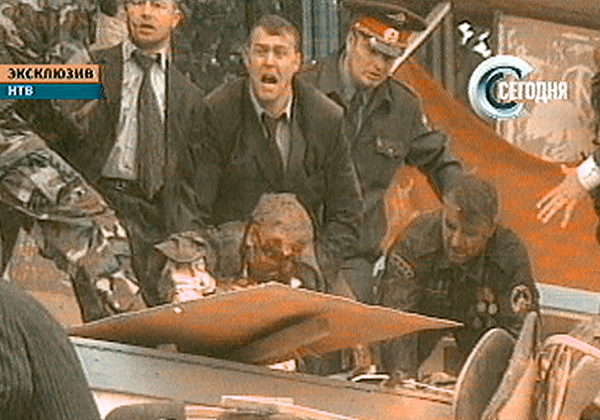
Photo: A video grab from NTV Russian television shows security personnel helping a man (C), believed to be Chechen President Akhmad Kadyrov, seconds after an explosion at a stadium in Grozny on 9 May 2004.
9 May: Brenda Fassie dies.
15 May: South Africa is announced as host of 2010 World Soccer Championship.
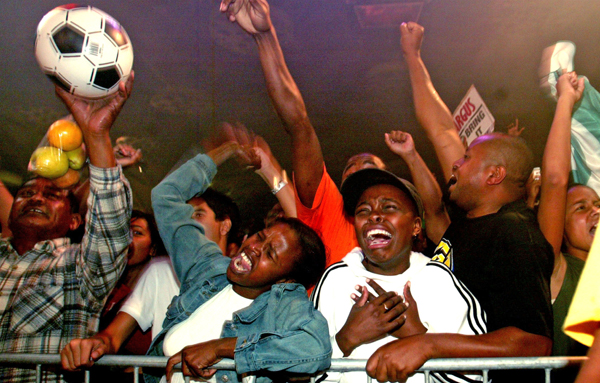
Photo: South African soccer fans cheer as the winning bid for the 2010 World Cup is announced, Cape Town May 15, 2004. Thousands of fans packed into Cape Town’s Good Hope Centre to watch a live broadcast as FIFA President Sepp Blatter declared South Africa the winning bid to host the showpiece event. Reuters.
Main photo for this story: Former South African president Nelson Mandela holds the World Cup Trophy after Fifa president Sepp Blatter announces South Africa will host the 2010 Soccer World Cup. Fifa’s executive committee chooses South Africa ahead of Morocco and Egypt on the first round of voting. REUTERS/Andreas Meier.
15 May: Magnificent Arsenal wins English Premiership without losing a single game. (They finally lose to Manchester United at Old Trafford on 16 October 2004 only after a run of 49 unbeaten games)
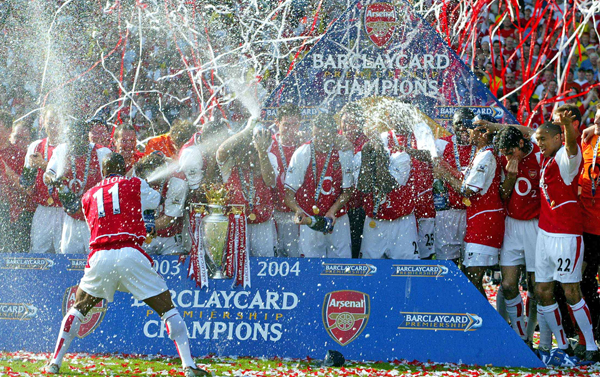
Photo: Arsenal celebrate with the 2004 Premiership Trophy at the end of their English premier league soccer match against Leicester City at Highbury, London, on 15 May 2004. Arsenal wins the match 2-1 and becomes the first side to be unbeaten in a league season since Preston North End achieved the feat in 1888/89. Reuters/Mike Finn-Kelcey.
22 May: Manmohan Singh is sworn in as 17th Prime Minister of India. The first Sikh to lead India, Singh is credited with creating a good climate for investors while not forgetting India’s poor.
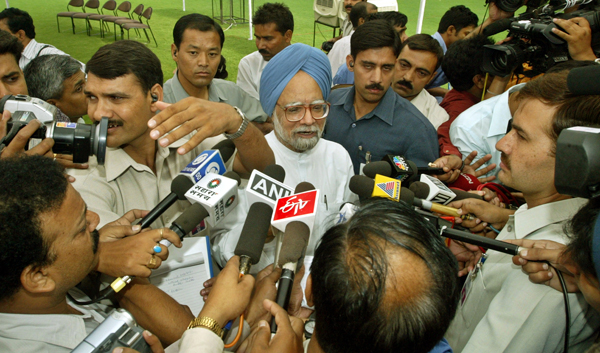
Photo: Indian Prime Minister Manmohan Singh replies to questions from reporters after unveiling a five-year policy plan called the Common Minimum Programme, in New Delhi on 27 May 2004. India’s new government announces it will pursue reforms aimed at economic growth of 7%-8% a year for the next decade. REUTERS/Kamal Kishore.
5 June: Ronald Reagan dies, aged 93
Watch: Reagan – “Mr Gorbachev, Tear Down This Wall”
8 June: Venus transits the Sun for the first time since 1882.
Previous recorded transits were in 1761, 1769, 1874 and 1882 and were used to calculate Earth’s distance from the Sun (149.5 million kilometres on average, if you need to know). The next transit will happen on 5 June 2012.
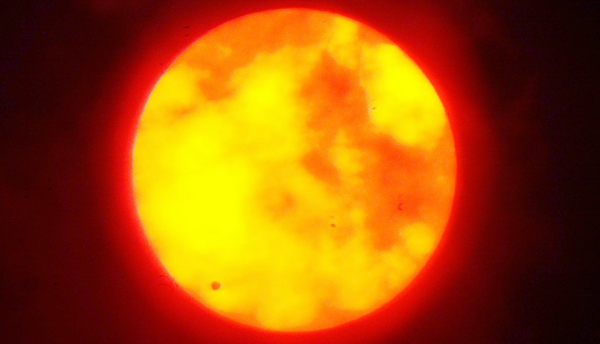
Photo: Venus passes across the sun as seen in Islamabad on 8 June 2004. The transit of Venus, when the planet drifts across the face of the Sun as it travels between the Sun and Earth, is so rare that no living being has previously witnessed the celestial event. REUTERS/Mian Khursheed.
10 June: Ray Charles dies, aged 74.
1 July: The Saturn-bound Cassini-Huygens spacecraft arrives at its destination.
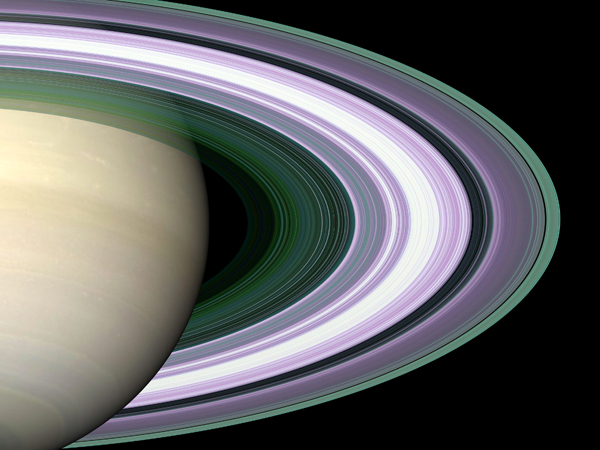
Photo: The most detailed look ever at Saturn’s rings, obtained by the Cassini spacecraft, is shown in this handout image released by Nasa on 24 May 2005. Colour is used to represent information about ring particle sizes measured by radio signals. The Cassini-Huygens mission is a cooperative project by Nasa, the European Space Agency and the Italian Space Agency. REUTERS/Nasa.
1 July: Marlon Brando dies. He was 80.
22 July: One of the most beautiful bridges ever made, Mostar’s Old Bridge is re-opened after being destroyed by Bosnian Croats in the Yugoslavian War in 1993, 427 years after its original construction. The 30m long and 24m high bridge was painstakingly rebuilt, using local stones, by local engineers and financed by the World Bank, Unesco, the Aga Khan Trust for Culture and World Monuments Fund.
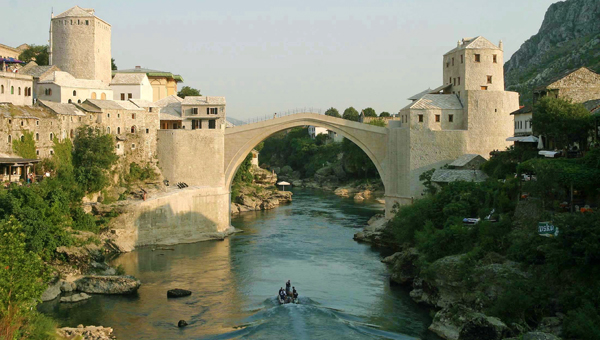
Photo: Bosnian policemen guard the newly rebuilt bridge, a replica of Mostar’s Old Bridge, on 23 July 2004. The white-marble bridge was erected in place of the famous 16th century Old Bridge (Stari Most), that Bosnian Croat artillery sent plunging into the water in 1993. Reuters.
29 July: John Kerry elected Democratic Party’s candidate for the 2004 US presidential election, with North Carolina Senator John Edwards as his vice presidential running mate…
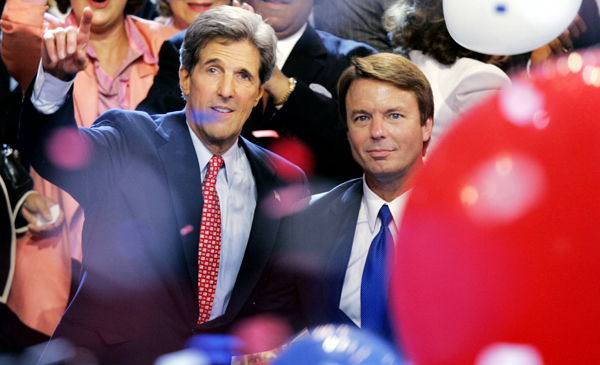
Photo: Democratic presidential nominee Senator John Kerry and running mate Senator John Edwards stand together on the stage at the Democratic national convention in Boston after accepting the party’s nomination on 29 July 2004. Reuters.
… But the show is stolen by the first night’s keynote speaker, a hitherto unknown state senator from Illinois. You may have heard of him:
13 – 29 August: Games of the XXVIII Olympiad are held on the site of the 1896 games in Athens, Greece.
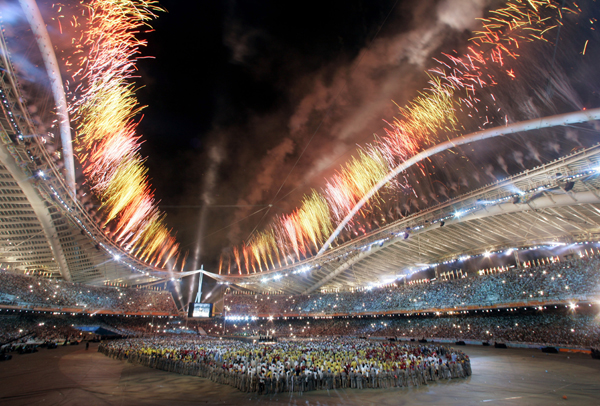
Photo: Fireworks explode during the closing ceremony of the Athens 2004 Olympic Games on 29 August 2004. REUTERS/Mike Blake.
15 August: SA’s 4x100m freestyle relay team wins Olympic gold medal and smashes the world record.
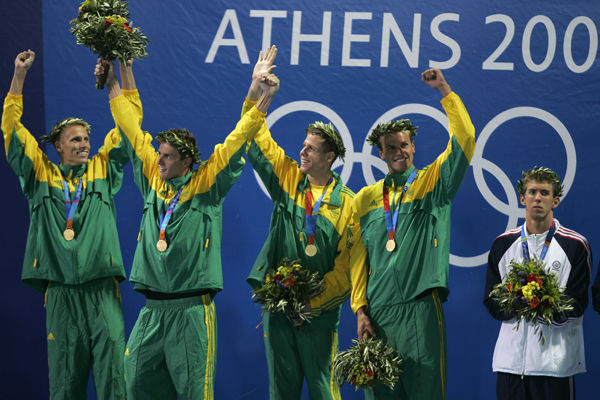
Photo: Michael Phelps of the US (far right) stands next to South Africa’s (LtoR) Ryk Neethling, Roland Schoeman, Lyndon Ferns and Darian Townsend celebrating their gold medal in the men’s 4x100m freestyle relay final at the Athens 2004 Olympic Games. South Africa win the race in a time of 3 minutes 13.17 seconds. REUTERS/Mike Blake.
18 August: Elmer Bernstein, one of Hollywood’s best composers, dies aged 82.
1 – 3 September: Chechen terrorists take the entire school in Beslan, Ingushetia hostage, demanding the release of all imprisoned Chechen rebels. On 3 September, Russian forces end the siege by invading the school; at least 335 people, mostly children, are killed in the tragedy.

Photo: A fireman walks through the debris of the gymnasium at a school soon after the bloody end to the hostage crisis in Beslan in North Ossetia near Chechnya on 3 September 2004. REUTERS/Mikhail Klementyev.
29 September: SpaceShipOne, piloted by SA’s Mike Melville, claims the X-prize.
Watch: SpaceShipOne X-Prize Flight #1
9 October: Interim president Hamid Karzai wins Afghanistan’s first-ever direct presidential election.
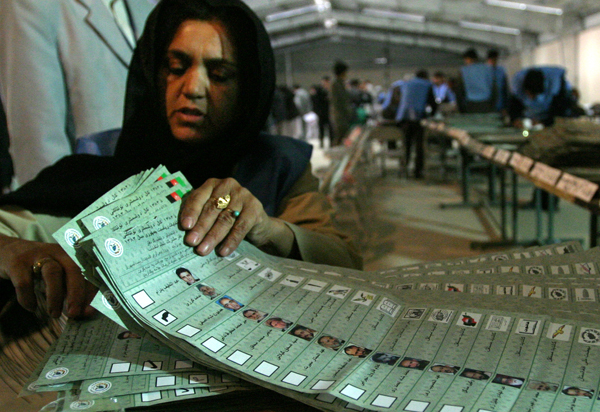
Photo: An Afghan election worker counts ballot papers at a counting centre in Kabul on 23 October 2004. REUTERS/Ahmad Masood.
24 October: Michael Schumacher wins Formula One Championship for a record seventh time.
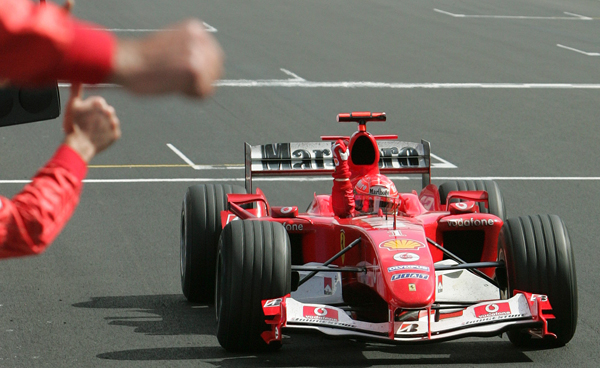
Photo: Ferrari driver Michael Schumacher of Germany raises his fist as he secures his seventh world title at the end of the Belgian Formula One Grand Prix in Spa-Francorchamps. REUTERS/Francois Lenoir
2 November: George W Bush re-elected President of the US.
Bush’s margin of victory (2.5%) is the smallest ever for an incumbent president. Needless to say, most of the rest of the world is rather depressed by his triumph. (see photo)
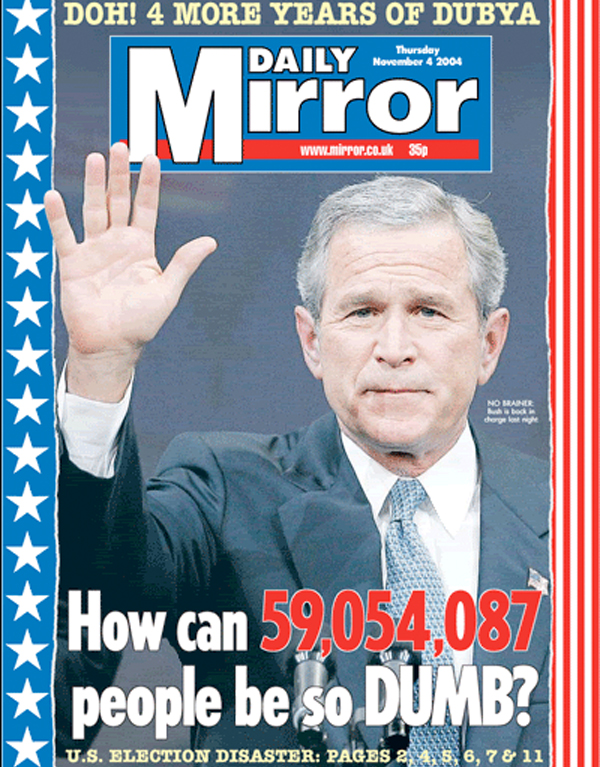
11 November: Leader of Palestinian Liberation Organisation Yasser Arafat dies, aged 75.
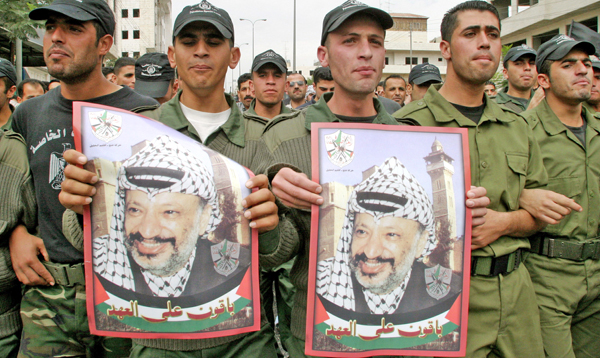
Photo: Palestinian policemen hold posters of Palestinian President Yasser Arafat during a rally following the announcement of his death, in the West Bank city of Hebron November 11, 2004. Palestinian leader Yasser Arafat, who rose from guerrilla icon to Nobel peace prize-winner but ended up isolated and locked in conflict with Israel, died in a French hospital.
13 November: Fallujah offensive completed.
After six days of door-to-door combat, US forces finally take over Fallujah, considered to be a hotbed of growing Iraq insurgency.
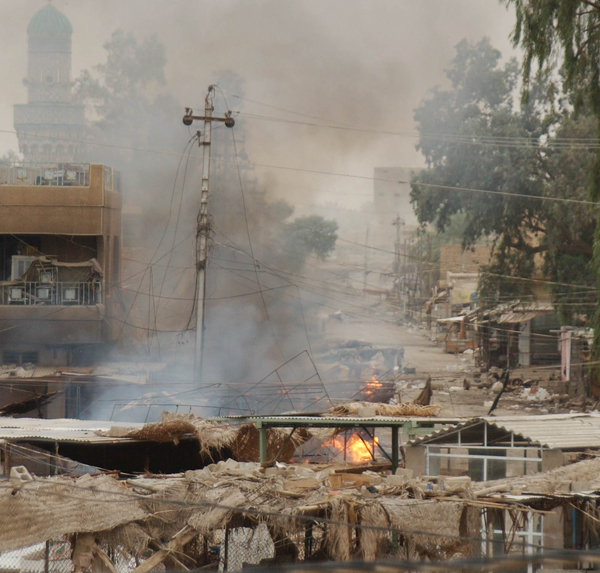
Photo: Buildings and debris in the Iraqi city of Falluja burn as US soldiers of the 1st Cavalry Division and Marines conduct street-to-street combat operations during Operation Al Fajr (New Dawn), on 9 November 2004.
14 November: Colin Powell resigns and is replaced by Condoleeza Rice.
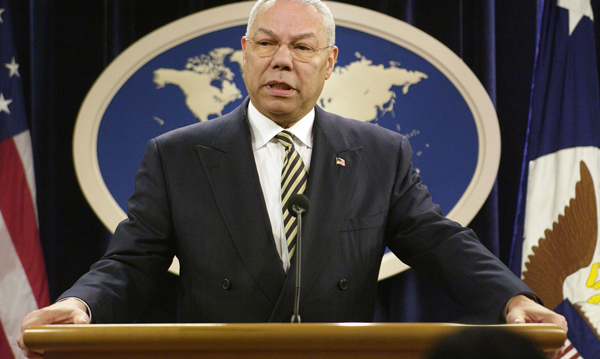
Photo: US secretary of state Colin Powell speaks to the media at the state department after resigning from the cabinet of President George W Bush in Washington, on 15 November 2004. Powell, widely respected in a world often wary of America’s superpower diplomacy, is the top administration official to quit since Bush’s re-election. REUTERS/Mannie Garcia MG/JDP
26 December: Tsunamis kill almost 227,000 in Southeast Asia.
A catastrophic Pacific “Ring of Fire” earthquake, just off the coast of Sumatra, registering 9.3 on the Richter scale, creates massive tsunamis that devastate the low coastal areas of Indonesia, Thailand, India, Sri Lanka, Malaysia, Maldives, Burma, and even causes significant damage to the east coast of Africa.
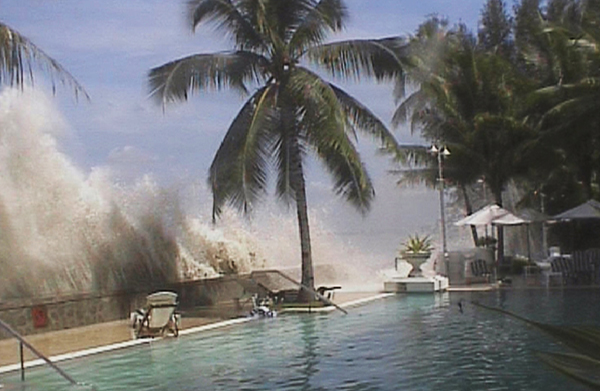
Photo: Video grab shows a tidal wave hit Penang in southern Asia in this amateur video footage taken 26 December 2004. Soldiers search for bodies in treetops, families weep over the dead lined up on beaches and rescuers scour coral isles for missing tourists after the earthquake, as Asia counts the cost of tidal waves the kill more than a quarter of a million people. Reuters.

















 Become an Insider
Become an Insider